Female pushback over trans sport rules
Australian women have joined a global league to defend female sport against new transgender rules which they say are risky.
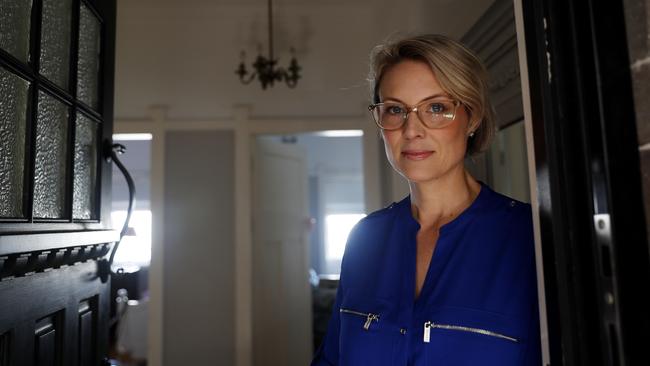
UPDATED | Australian women have joined a global league to defend female sport against new transgender rules which they say are unfair, demoralising and likely to increase the risk of injury for girls and women in contact games.
“Women have fought for decades to have access to similar resources (as male sport), similar media coverage, pay parity in professional sports — and now that we are actually starting to gain some ground, that’s all being put at risk,” said Katherine Deves, the Sydney-based spokeswoman for a new group Save Women’s Sport Australasia.
Last week, the activist lobby Pride in Sport announced eight sports — including AFL, hockey, netball, rugby, tennis and touch football — had adopted trans-inclusion policies inspired by a contentious 2019 guideline from federal government agencies Sport Australia and the Australian Human Rights Commission.
Pride in Sport, a fee-earning arm of ACON which operates as a national trans activist lobby and “inclusive” training provider, said 14 other sports had promised to come up with similar policies.
A joint statement from ACON and sporting codes claimed trans people were “nearly 11 times more likely to attempt suicide than the general population”, and said sport would aid mental health. The statistic is based on a 2012 Scottish Transgender Alliance survey with a non-representative sample of 889 people, most online.
Sport Australia’s “inclusive sport” director Merrilee Barnes, who led the 2019 trans-inclusion guideline project in collaboration with a hand-picked selection of unnamed groups, also serves on the advisory board for Pride in Sport. She is not paid for this, a spokeswoman for Sport Australia said.
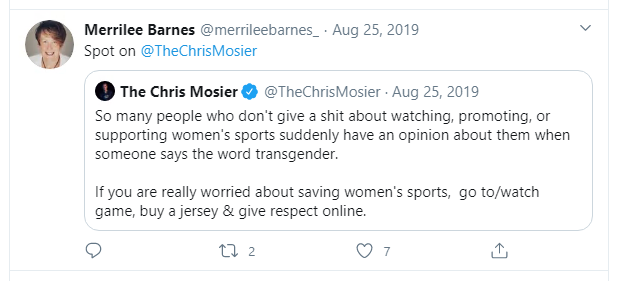
Pride in Sport’s manager Beau Newell said last Thursday’s trans policy launch at the Sydney Cricket Ground “demonstrates a fundamental shift within Australian sport towards the greater inclusion of trans and gender diverse athletes”.
ACON’s trans equity manager Teddy Cook said it was damaging and untrue to suggest trans people “affirm our gender to seek a competitive advantage in sport”.
Olympian athlete Tamsyn Lewis, who is part of the group looking at trans-inclusion in track and field events, said there were many ways for trans people to play sport and stay healthy while protecting female sport as a category for girls and women.
She was “very concerned” about rushed policymaking with inadequate research on the implications for female participation, safety and fairness.
“If you allow XY (chromosome) males (who identify as female) to participate in a female sport without having undergone any (medical gender transition) that could be really dangerous to females,” she said.
“If there’s a physicality in the sport, like rugby, parents may decide not to allow their daughters to play because they’re worried and there you go, you’re already losing numbers.”
“I feel the recent transgender policies have completely forgotten the reason (male physiological advantage) why the female sport category was put in place.”
The World Rugby Transgender guideline is now out, and fully available here: https://t.co/RUZ7QrlodQ You’ll also find a document called FAQs which tries to answer some common questions. We firmly believe it is the right thing in an emotive issue, for many reasons.
— Ross Tucker (@Scienceofsport) October 9, 2020
On Saturday, World Rugby confirmed it would be the first international sporting federation to oppose trans players in the elite female game.
“As with many other sports, the physiological differences between males and females necessitate dedicated men’s and women’s contact rugby categories for safety and performance reasons,” the organisation said.
“Given the best available evidence for the effects of testosterone reduction on these physical attributes for transgender women (with male bodies), it was concluded that safety and fairness cannot presently be assured for women competing against transwomen in contact rugby.”
World Rugby took into account its exposure to litigation over serious injury to women players.
However, trans players with the physical ability will be allowed in the elite male game, because the higher injury risk is to themselves, not to other players.
Tasmanian Liberal Senator Claire Chandler, who has been campaigning for female sport against what she regards as unbalanced trans policies, welcomed World Rugby’s statement.
“This decision, however, only further highlights the dangerous absurdity of Rugby Australia, Sport Australia, the AFL and other major sports in adopting the opposite position that ‘inclusiveness’ is more important than women’s safety,” she said.
“If it is not safe or fair for a professional female rugby player to have to play against biological males, then it isn’t safe or fair for Australian women playing at their local club either.”
“The choice for Rugby Australia and Sport Australia is clear — either step in to prevent women being exposed to a huge increase in the risk of serious head and neck injuries, or admit that they have higher priorities than the safety of women in sport.”
Europe-based sports medicine expert and coach Tony Lycholat has expressed puzzlement at the international haste to open up female sport to biological males who identify as female, often with no medical gatekeeping at the non-elite level.
“This has led to high school male athletes in the US (who were) completely unable to win anything in male competition one season, identifying as girls the next and predictably becoming state champions and record breakers — that’s male performance advantage in a nutshell,” Dr Lycholat said.
World Rugby: the future of women’s sports
Asked about the risks of injury and unfairness, Australia’s Minister for Sport Richard Colbeck said the government “expects sporting codes to ensure the integrity of women’s sport and sporting competitions is maintained”.
And while he said it was up to each sport to make its own rules, “common sense and practical solutions to these matters should be applied by sports at a local level”.
Ms Deves, whose three young daughters play seven sports between them over the course of the year, said unfairness could lead to “self-exclusion by women and girls from teams or competitions because they’re demoralised — they know what the outcome is going to be before they compete — or because of the safety issues.”
“At no time has anyone said people who are trans or gender diverse can’t play sport, but there needed to be a conversation about this and we needed to look at the research, and we needed to hear opinions from everybody.”
“This has been done without any (mainstream) community consultation or knowledge, no parliamentary or ministerial oversight, no media scrutiny whatsoever.”
Ms Deves said ACON and its partner sports had not given due weight to research concluding that trans competitors who have been through male puberty retain almost all their advantage in lean body mass, muscle area and strength, even if they take drugs to suppress their testosterone in line with 2015 IOC rules.
Following last Thursday’s trans policy launch, Save Women’s Sport New Zealand opened up to Australian women, creating the new Australasian group, which is linked to Save Women’s Sports in the USA, where Republican senators last month introduced a draft civil rights law to strip schools of federal funding if their trans policies tilt the playing field against girls.
“Women who speak up about (trans-identifying) males invading female spaces risk losing opportunities, sponsorships, and even their livelihoods,” said Beth Stelzer, founder of the original US group and an amateur powerlifter.
“Save Women’s Sports was created to help provide a voice for these females and we are excited to have women working to create advocacy teams in Australia and New Zealand to fight back against this blatant disrespect.”
"To most Australians, pages of scientific analysis and legal interpretation are not required to understand why biological males competing in women’s sport undermines the very purpose of women’s sport ... but it’s 2020." | Claire Chandler in @australian https://t.co/2wNWn8DgcS
— Bernard Lane (@Bernard_Lane) October 1, 2020
In Australia, Ms Lewis and fellow athlete Jane Flemming are unusual in going public with their concerns about female sport. Other high-profile women in sport do not feel able to speak out for fear of online abuse, threats or a potentially career-ending accusation of “transphobia”.
At least two sports locally, rugby and netball, have adopted liberal trans-inclusion stances potentially in tension with their international bodies.
World Rugby’s research-led approach to the issue, regarded by sports science commentators as the best to date, led to a July draft ruling that even with testosterone suppression trans players who are biologically male represented too great a risk to safety and fairness in the women’s game.
World Rugby’s historic February meeting of experts on the trans issue included the director of the UK group Fair Play for Women, Nicola Williams, a research scientist specialising in biology. Dr Williams’s group organised a letter to the IOC in defence of female sport signed by more than 60 UK Olympic medallists.
The new trans policy for Australian netball, the most popular female team sport, allows biological males who identify as trans to play at the elite level if they keep their blood testosterone down to 5 nanomoles per litre for 24 months before competition. World Athletics cites the typical female testosterone level as 0.12 to 1.79 nmol/L, with higher levels suggesting medical problems or doping.
Although some males play netball, the game’s female-only character at the international level — and its role in “the empowerment of women” — was reasserted as recently as 2018.
“Netball is one of the few team sports to attract girls and women to participate in large numbers contributing to addressing the current global disparity in sports participation, with the resultant benefits on health and wellbeing,” the International Netball Federation says in its policy statement.
“This sets netball apart from many other sports which are working hard to attract females. This is netball’s unique selling point and is something that should be maximised.”
Netball Australia admits there may be a problem if a transfemale player becomes eligible to play for the national team in an INF competition. It is working on a trans-inclusion policy for community netball.
Netball Australia’s 2018 concussion policy, written by then chief medical officer Sophie Armstrong, says: “Women are twice as likely to suffer concussion as men”.
In 2019 Cricket Australia’s sports medicine manager Alex Kountouris said recent data suggested female players were “converting head injuries to concussions more readily”.
Sport Australia’s concussion guide cites “female sex” as one of the factors in slower recovery from concussion. Females are reportedly at a higher risk of knee and ankle injuries because of their bodies’ biomechanics.
Inga Koerte, professor of neurobiological research at LMU Munich University in Germany, said there was “emerging evidence” of sex differences in male and female athletes suffering concussion.
“Girls and women tend to take longer to recover and more often develop chronic symptoms,” she said, adding that the differences could not be fully explained by social or cultural factors.
Some researchers point to the smaller female neck, increasing acceleration of the head, and it’s thought the risk of concussion may vary with hormones during the menstrual cycle. Concussion in female sport is an underdone research field.
LGBT rights campaigners have criticised World Rugby's decision to prevent transgender women from competing at the highest levels of the women's game.
— BBC Sport (@BBCSport) October 10, 2020
More: https://t.co/Gwfz2yISlR pic.twitter.com/6MKDTmBaul
The Weekend Australian put questions to ACON, Rugby Australia and Netball Australia.

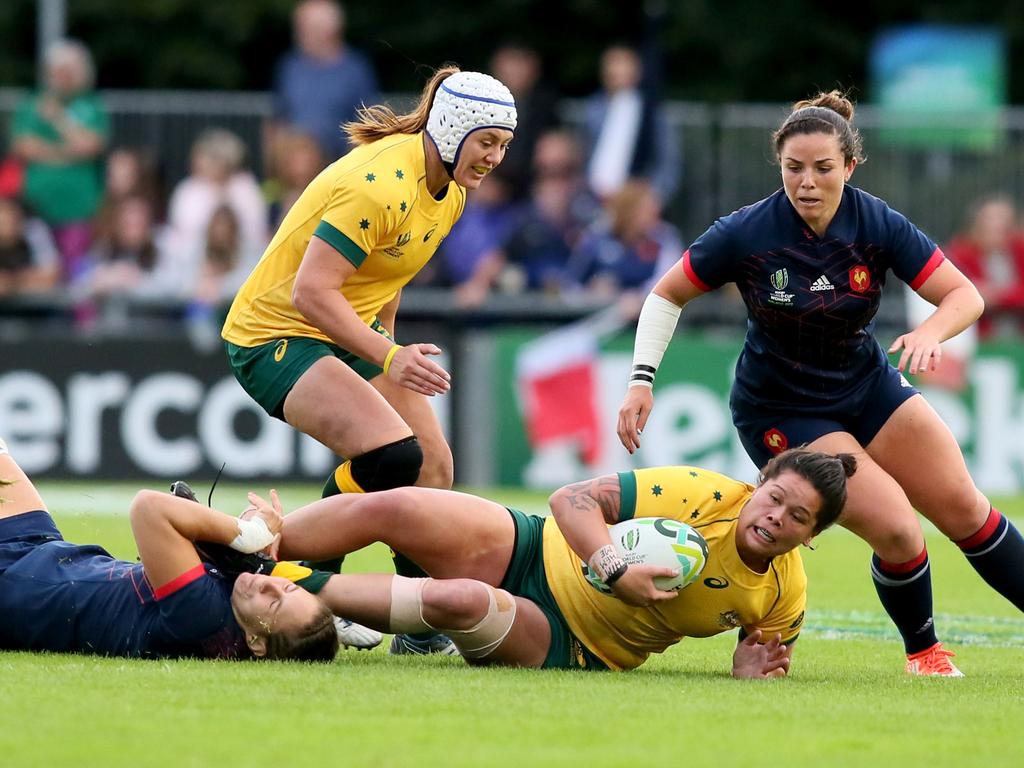
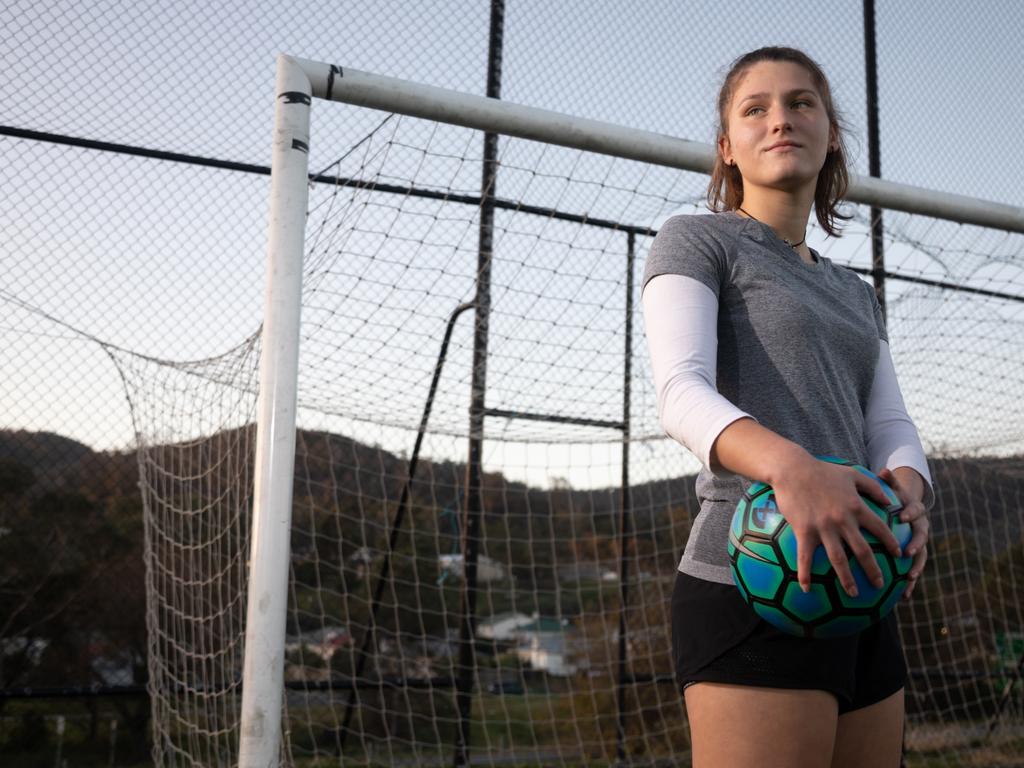
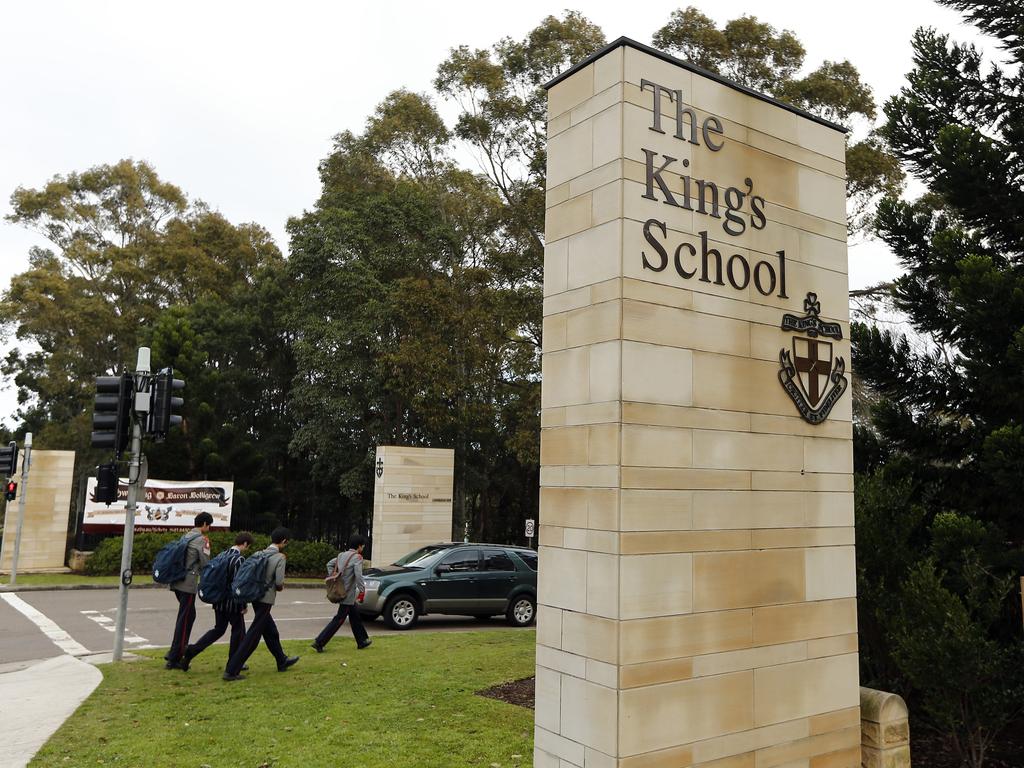



To join the conversation, please log in. Don't have an account? Register
Join the conversation, you are commenting as Logout